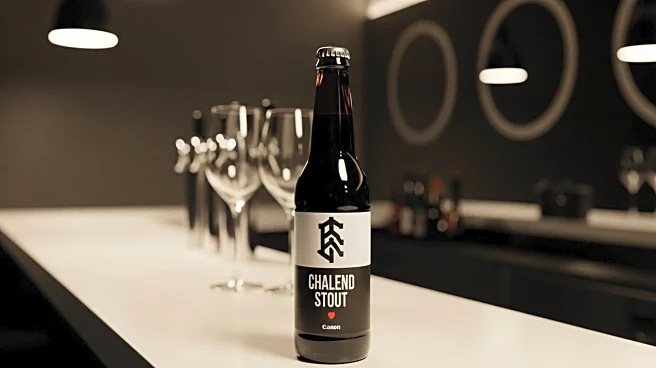What's Happening?
Aldi is introducing a new private label stout called Mulligan's, priced at £4.99 for a four-pack, which is 13% cheaper than Guinness. Brewed by O Brother Brewing in Ireland, Mulligan's has received early reviews suggesting it tastes better than Guinness and Heineken's Murphy's stout. Despite the competitive pricing and positive taste reviews, experts argue that the success of Mulligan's will depend more on brand experience than taste alone. Guinness has established itself as a strong brand through effective marketing, cultural involvement, and consistent consumer-focused innovation, making it a formidable competitor in the stout market.
Why It's Important?
The launch of Mulligan's by Aldi poses a significant challenge to established brands like Guinness, testing the strength of brand loyalty versus price sensitivity. If consumers switch to Mulligan's due to its lower price, it could indicate a shift in consumer behavior, emphasizing cost over brand experience. This scenario could lead to a reevaluation of marketing strategies across the industry, highlighting the importance of brand equity and emotional connection with consumers. Aldi's move also underscores the impact of economic factors, such as cost-of-living pressures, on consumer choices, potentially influencing market dynamics in the beverage industry.
What's Next?
The success of Mulligan's will likely prompt further analysis of consumer behavior in the context of brand loyalty versus price sensitivity. If Aldi's stout gains market share, it may lead to increased competition and innovation among established brands to maintain their consumer base. Additionally, the outcome could influence marketing strategies, with brands potentially focusing more on emotional and functional differentiation to justify premium pricing. The beverage industry may see a shift towards more competitive pricing and strategic branding efforts to counteract the appeal of lower-cost alternatives.
Beyond the Headlines
The introduction of Mulligan's highlights the broader implications of brand imitation and the legal boundaries of product similarity. Aldi's strategy of creating products that closely resemble established brands raises questions about intellectual property rights and the ethical considerations of brand imitation. Furthermore, the situation reflects the ongoing debate among marketing academics regarding the effectiveness of differentiation and pricing power, challenging traditional marketing concepts and potentially reshaping industry practices.








